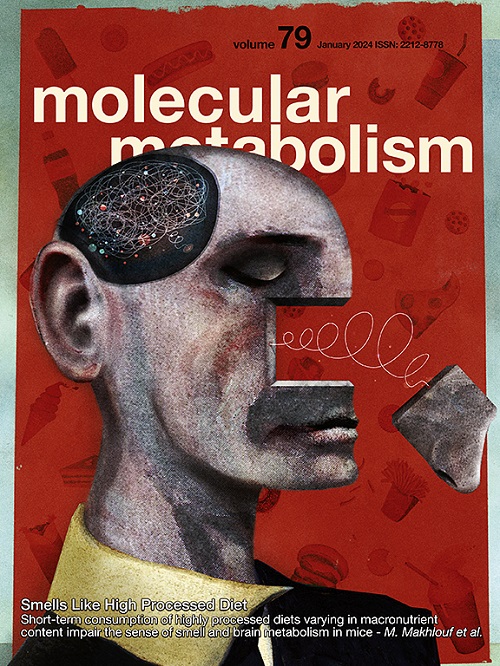Transcriptomic signatures of cold acclimated adipocytes reveal CXCL12 as a Brown autocrine and paracrine chemokine
IF 7
2区 医学
Q1 ENDOCRINOLOGY & METABOLISM
引用次数: 0
Abstract
Besides its thermogenic capacity, brown adipose tissue (BAT) performs important secretory functions that regulate metabolism. However, the BAT microenvironment and factors involved in BAT homeostasis and adaptation to cold remain poorly characterized. We therefore aimed to study brown adipocyte-derived secreted factors that may be involved in adipocyte function and/or may orchestrate intercellular communications. For this, mRNA levels in mature adipocytes from mouse adipose depots were assessed using RNA sequencing upon chronic cold acclimation, and bioinformatic analysis was used to identify secreted factors. Among 858 cold-sensitive transcripts in BAT adipocytes were 210 secreted factor-encoding genes, and Cxcl12 was the top brown adipocyte-enriched cytokine. Cxcl12 mRNA expression analysis by RT-qPCR and fluorescence in situ hybridization specified Cxcl12 distribution in various cell types, and indicated its enrichment in cold-acclimated brown adipocytes. We found that CXCL12 secretion from BAT was increased after chronic cold, yet its level in plasma remained unchanged, suggesting a local/paracrine function. Cxcl12 knockdown in mature brown adipocytes impaired thermogenesis, as assessed by norepinephrine (NE)-induced glycerol release and mitochondrial respiration. However, knockdown of Cxcl12 did not impact β-adrenergic signaling, suggesting that CXCL12 regulates adipocyte function downstream of the β-adrenergic pathway. Moreover, we provide evidence for CXCL12 to exert intercellular cross-talk via its capacity to promote macrophage chemotaxis and neurite outgrowth. Collectively, our results indicate that CXCL12 is a brown adipocyte-enriched, cold-induced secreted factor involved in adipocyte function and the BAT microenvironment communication network.
求助全文
约1分钟内获得全文
求助全文
来源期刊

Molecular Metabolism
ENDOCRINOLOGY & METABOLISM-
CiteScore
14.50
自引率
2.50%
发文量
219
审稿时长
43 days
期刊介绍:
Molecular Metabolism is a leading journal dedicated to sharing groundbreaking discoveries in the field of energy homeostasis and the underlying factors of metabolic disorders. These disorders include obesity, diabetes, cardiovascular disease, and cancer. Our journal focuses on publishing research driven by hypotheses and conducted to the highest standards, aiming to provide a mechanistic understanding of energy homeostasis-related behavior, physiology, and dysfunction.
We promote interdisciplinary science, covering a broad range of approaches from molecules to humans throughout the lifespan. Our goal is to contribute to transformative research in metabolism, which has the potential to revolutionize the field. By enabling progress in the prognosis, prevention, and ultimately the cure of metabolic disorders and their long-term complications, our journal seeks to better the future of health and well-being.
 求助内容:
求助内容: 应助结果提醒方式:
应助结果提醒方式:


